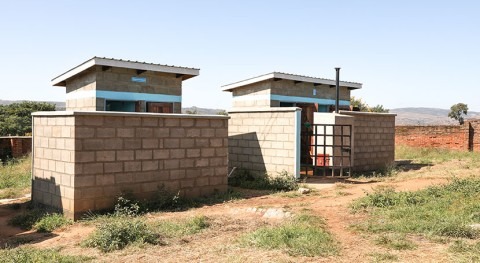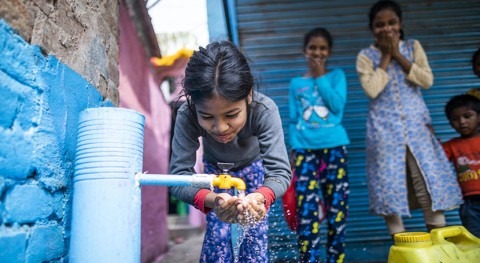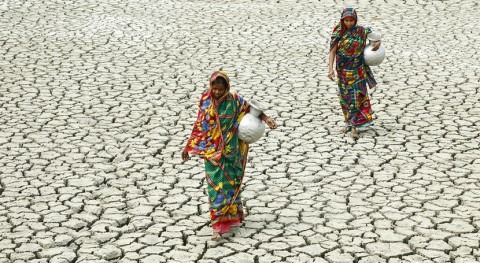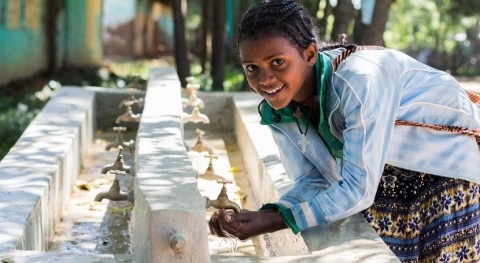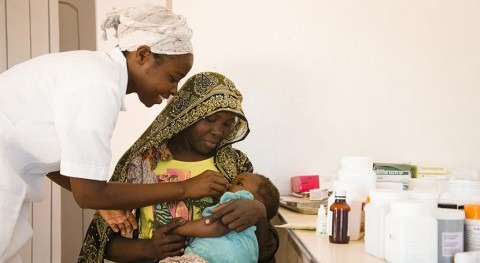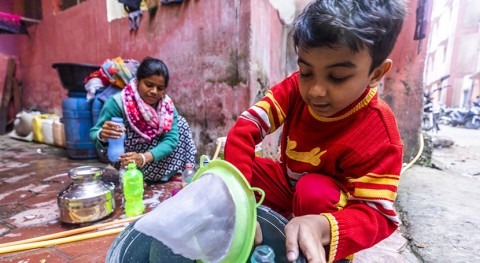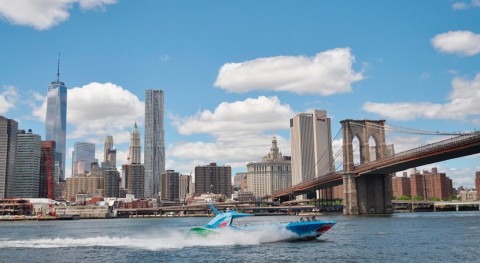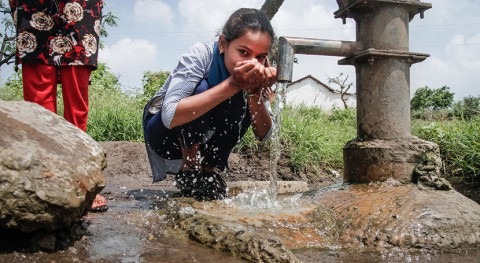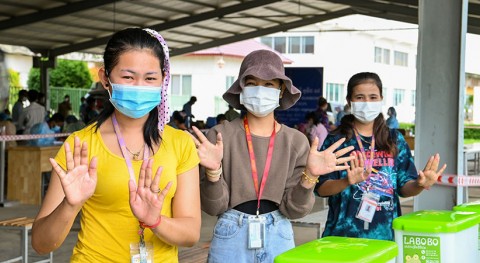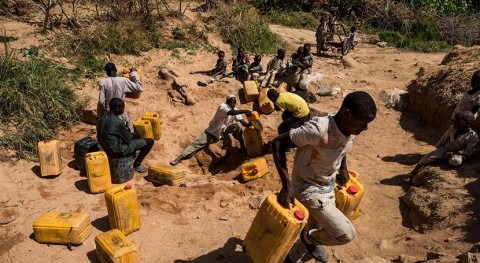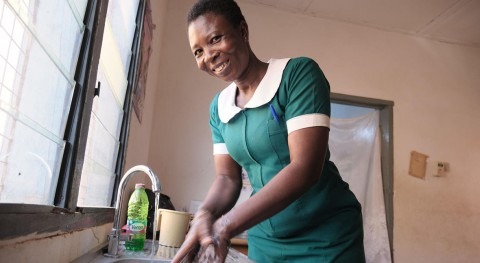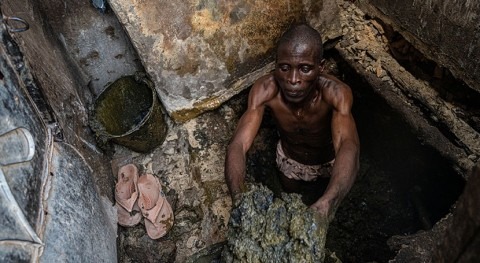Ahead of World Water Day, we interview Tim Wainwright, Chief Executive of WaterAid, an international non-profit organization founded in 1981, to find out about how the not-for-profit tackles the water crisis around the world.
Question: Firstly, we would like to know briefly your career path and your current role in WaterAid.
Answer: I was delighted to join WaterAid as Chief Executive in May 2017. I’ve spent most of my career working in international development, after starting out in operational research and marketing at British Airways. I’ve worked in Beijing and Bangkok, as well as here in the UK, with Oxfam and VSO, and before joining WaterAid I was chief executive of a smaller charity working on disability in development. I’ve also been a chair of Bond, the consortium of UK international development agencies.
I really believe water, sanitation and hygiene are the foundation of all progress in development. If we are going to reach everyone, everywhere with services that last, this means we need to work with civil society, governments and the private sector – everyone has a role to play.
I really believe water, sanitation and hygiene are the foundation of all progress in development.
Q: What type of activities does WaterAid carry out related to water and sanitation?
A: WaterAid works in 28 countries across South and Southeast Asia, Sub-Saharan Africa, Latin America and Oceania to deliver clean water, decent toilets and good hygiene. We work with local partners to help provide services to households, communities, schools and healthcare centres, and work with governments at all levels and the private sector to try to create large-scale change which will help fulfil the UN Sustainable Development Goal 6, which pledges water and sanitation for everyone, everywhere by 2030.
Since 1981, WaterAid has reached 25.8 million people with clean water and 25.1 million with decent toilets.
Q: What are WaterAid’s main achievements since its foundation in 1981? And what are the goals your organization hopes to achieve this coming year?

Shita, 28, and her sister in law Semira, 21, fetching water from Bilate river. Photo: WaterAid
A: WaterAid is working to make clean water, decent toilets and good hygiene normal for everyone, everywhere within a generation. Since 1981, WaterAid has reached 25.8 million people with clean water and 25.1 million with decent toilets. And we currently work in 34 countries, including 28 countries with programme work, and offices to support programming, advocacy and fundraising in Sweden, Australia, Japan, Canada and the United States as well as the UK.
Q: What are the main difficulties WaterAid finds in providing access to clean water and sanitation?
A: We work in some very remote and rural areas, so we do face some challenges. First is the challenge of accessing water in areas that are very hard to reach: some of the communities we work in are accessible only on foot, so it’s hard to bring in machinery to drill deep wells. But the bigger challenges often come in convincing governments that water, sanitation and hygiene are so important that they need to be a political and financial priority. Most politicians are happy to open a new road or a new school; it isn’t as exciting to open a new set of community latrines! But we know that water, sanitation and hygiene are critical to good health, education and better productivity for communities and entire countries, and working with our partners, we are making progress.
We believe that everyone has a role to play if we are to reach everyone everywhere by 2030 with clean water and decent toilets.
Q: What partners does WaterAid work with to deliver clean water and decent toilets?
A: We work with partners at all levels – from local to regional to national governments, local water utilities, civil society groups, other non-governmental organisations, UN bodies and the private sector. We believe that everyone has a role to play if we are to reach everyone everywhere by 2030 with clean water and decent toilets.
Q: With regards to World Water Day, why do you think it necessary to highlight the marginalized groups’ difficulty in accessing safe water?
A: It’s so important to highlight the needs of the poorest and most marginalised people because they are the ones who suffer most when there is no safe water or decent toilets, and also, they are the ones most likely to be left out if there isn’t enough water to go around. Women and girls, older people, disabled people, people who live in remote and rural locations, and other people who face discrimination because of their caste, religion or any other reason all face extra challenges when it comes to accessing clean water and decent toilets, and may face extra health or educational challenges when these are not available.For instance, we’ve worked in communities where disabled people are literally hidden away because they’re believed to be cursed or to bring bad luck; a really important part of our work is ensuring those myths are dispelled and that their voices and needs are heard, included and met. Our goal is to ensure that no one is left behind: a community only really benefits from clean water and good sanitation if everyone is reached.
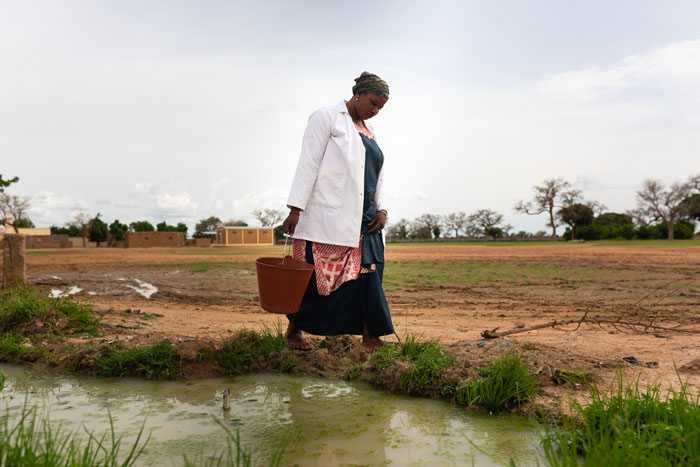
Salimata Dagnogo, 32, Matron of Talo Health Centre, carries a bucket of water. Salimata has worked at Talo for eight years and faces big challenges in her role without the availability of clean water. Photo: WaterAid
Q: Does WaterAid carry out educational projects related to water, hygiene and sanitation? And if so, which are the most relevant?
A: Schools are an important part of our community work on water, decent toilets and good hygiene. Children who are thirsty at school have difficulty learning; they may not be able to concentrate if they know there is no safe, private place to go to the toilet when they need to, and children who are frequently unwell from dirty water also miss many lessons. As girls grow older and begin menstruating, having access to a decent, private toilet and clean water becomes even more important so they can care for themselves properly at school – otherwise, they may simply stay at home, missing lessons, falling behind and heightening the risk that they may drop out completely. In addition to ensuring schools have a clean water supply and decent, separate toilets for boys and girls, we also create school hygiene clubs where pupils can learn about the health benefits of good hygiene and how to keep clean. They often take these lessons home to ensure everyone in a family benefits.
Our goal is to ensure that no one is left behind: a community only really benefits from clean water and good sanitation if everyone is reached.
Q: And lastly, what do you think citizens can do to make the SDG 6 goal possible?
A: We need everyone to play a role if we are to reach everyone, everywhere with clean water and decent toilets. We know it’s possible but we’ll need political priority and financing to get there. We want people to support our work in any way they can: this might be going on a World Water Day walk, holding a bake sale or participating in a sporting event to fundraise and raise awareness, or writing a letter to their MP showing their support for international aid for water, sanitation and hygiene. It can also include making careful choices in food and clothing purchases, thinking about what the water ‘footprint’ of those items might be, and choosing things that are less water-intensive, and produced by companies that can demonstrate they are being responsible about their use of water in production.And don’t take our own water supply for granted – the UK will soon be facing its own problems with water scarcity so be thoughtful about your own use of water: don’t waste water by taking long showers or letting the tap run during toothbrushing.




